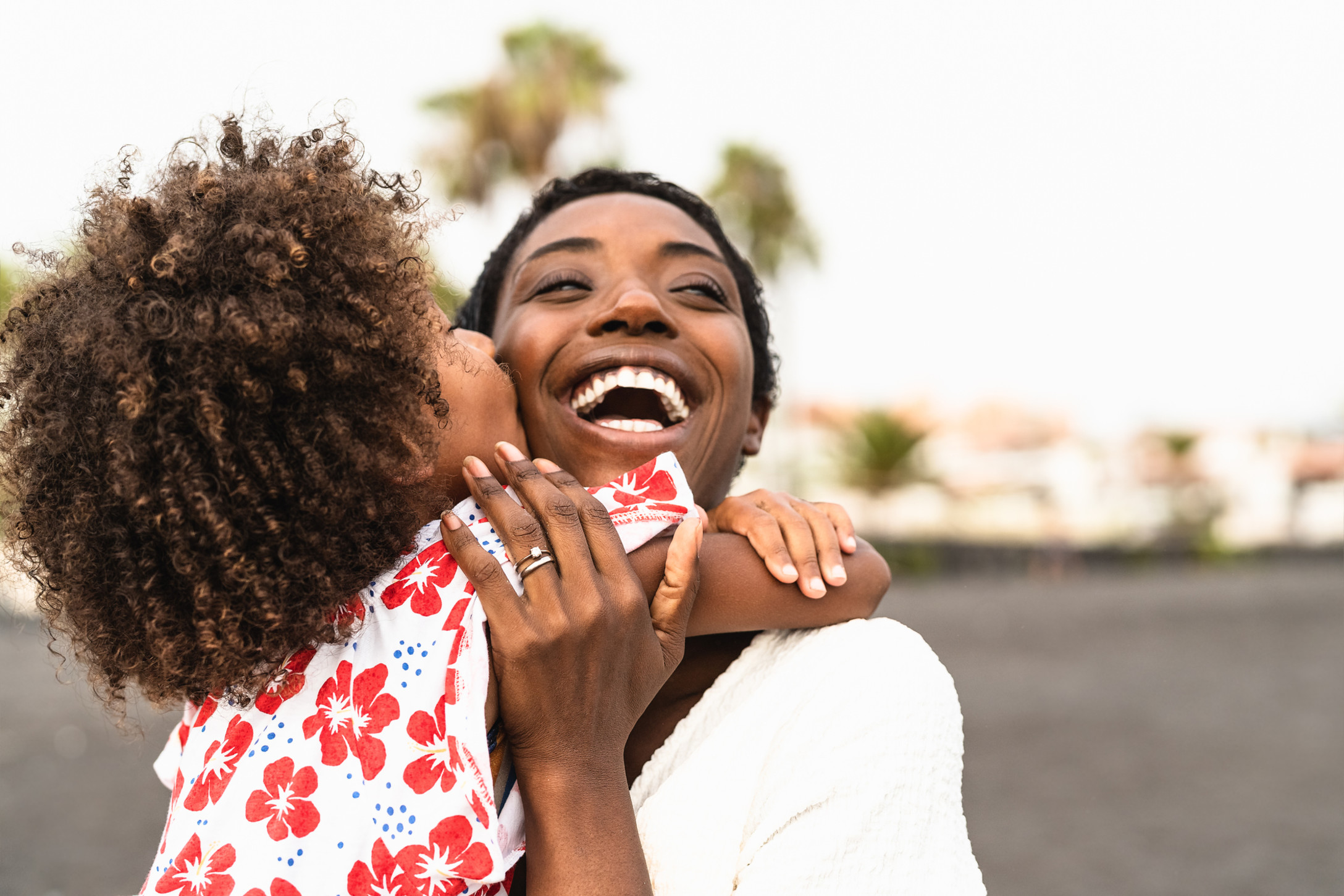
One thing I’ve learned since becoming a Positive Discipline Parent Coach, is talking about parenting can bring out the same strong emotions as talking about politics. Go to any Facebook page that discusses parenting and you’ll see what I’m talking about. Everybody has an opinion about which parenting technique is best to raise a child into a responsible adult. But, when I found myself pregnant at 36 years old, I didn’t want everyone’s opinion. I knew I didn’t want to raise my child the way I was raised, with spankings and other punishments, so I sought out experts and evidenced-based research to help me choose a parenting path based on respect, one that would honor my child’s humanity, which is why I chose gentle parenting.
Now, whenever I say I’m not spanking my daughter, inevitably I get, “Well, you have to discipline your child. She can’t be your friend,” because we’ve all been taught that children need violence in order to learn.
"Without violence, your child will become a menace to society," is a genuine falsehood. I don’t have time to talk about how binary thinking keeps people stuck in cycles of confusion, shame, and guilt, but suffice it to say, children can learn without violence, without punitive punishments or shame, and still respect their parents and other adults. Let’s do a quick breakdown of what gentle parenting is and isn’t…
Gentle parenting:
- Is based on evidenced-based neuroscience with a strong emphasis on social-emotional learning.
- Is built on respect, boundaries, and structure
- Helps children learn through the use of natural and logical consequences
- Is not permissive parenting
- Is not the lack of discipline
Children who are raised by parents who practice gentle parenting understand and respect others because their parents model respectful behavior.
They are empathetic because their parents model empathy. They are confident and secure in themselves because they are not taught that mistakes and misbehavior make them bad people. Instead their parents looked at all behavior as communication and a learning opportunity to teach them how to do better in the future, always taking their age and development into consideration.
And parents who practice gentle parenting, especially someone like me, raised with violence and shame, have to do some major mindset resets in order to see their child’s humanity and not react to their age-appropriate behavior in a harmful or toxic manner. We have to be on a constant journey of learning about ourselves, our triggers, and our reactions. Gentle parents have to be intentional about our interactions with our children, learning how to pause before we react and apologize when we make mistakes.
That conscious, intentional behavior is why gentle parenting is the way forward.
Think about the world as it is right now. Does it seem like people are thriving? Does it feel like we are connected to each other’s humanity? Does it feel like we respect each other, especially when someone does something we don’t like? See, the way we raise our children impacts how they interact with the world. And the world as it is today is the natural consequence of centuries of dehumanizing people, especially children.
Many of us are waking up to the various ways oppression is perpetuated on marginalized people … except children, a concept known as childism. Childism, as defined by author Elisabeth Young-Bruehl is a prejudice against children which legitimates and rationalizes a broad continuum of acts that are not “in the best interests of children,” including the often violent extreme of child abuse and neglect.
The United Nations' “Convention on the Rights of the Child Abstract" explains this concept a little deeper:
“Childism is the hardest form of prejudice to recognize because children are the one group that, many of us think without thinking, is naturally subordinate. Until they reach a stipulated age, they are the responsibility of their parents or guardians — those who have custody. But what does custody permit? What distinguishes it from ownership? One of the essential ingredients of childism is a claim by adults to the effect that children are ours to do with exactly as we see fit, or children exist to serve, honor and obey adults. These claims make a subordination doctrine out of natural dependency, out of the fact that children are born relatively helpless and need to be taken care of until they can take care of themselves. It seems normal to insist 'honor thy father and thy mother' without any reciprocal 'honor thy children.'”
Gentle parenting is the antidote to childism, and all the other “isms,” in my opinion.
Because if we can respect the humanity of children who we have no choice but to care and provide for and treat them as if they are the most precious and fragile, but integral part of our society, instead of like burdens that need to be controlled and punished into submission, I think it would impact the way adults interact with each other. So many adults are walking around with childhood trauma, unable to thrive, angry, and emotionally unavailable because they were taught their feelings, voice, and body autonomy didn’t matter. And just like the saying goes … hurt people, hurt people. The world is filled with hurting people.
This style of parenting is truly a long-term investment.
If you want your child to grow into an adult who is more than just responsible but knows how to advocate for themselves, and who’ll recognize when anyone is trying to oppress them or step on their boundaries, who is able to express their emotions, gentle parenting is the way. Raising your children to respect other people’s humanity because you modeled that their humanity matters is the foundation to dismantling all other oppressive systems. Gentle parenting is the way forward. It is how we change the world.




